Buy vs. Build
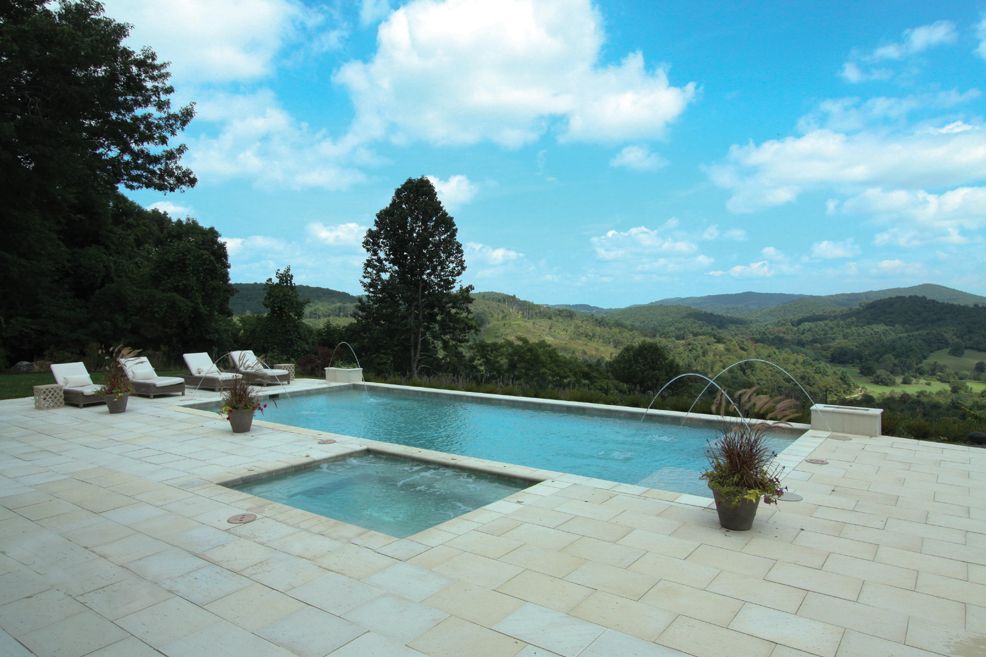
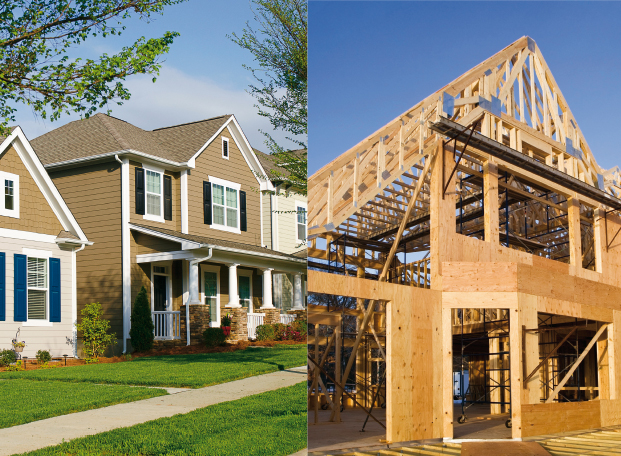 Purchasing a home is a big decision—possibly the most expensive one you’ll ever make. Ensuring that your home is going to support your lifestyle and please your senses will most likely require some planning and effort. If making a big change is on your horizon, you may choose to buy an existing home and renovate it to your standards, or build a custom home. While both processes have their advantages, there are distinct differences that will make one a better fit for you, depending on your needs.
Purchasing a home is a big decision—possibly the most expensive one you’ll ever make. Ensuring that your home is going to support your lifestyle and please your senses will most likely require some planning and effort. If making a big change is on your horizon, you may choose to buy an existing home and renovate it to your standards, or build a custom home. While both processes have their advantages, there are distinct differences that will make one a better fit for you, depending on your needs.
Buying and Renovating
Buying an existing home may be more attractive than building if convenience, timeframe, financing and location are major concerns for you. Compared to the effort and attention to detail involved in constructing a new house, buying a resale is very convenient. When shopping for a resale, most of the major decisions have already been made: the land has been developed, conditions for electric, water and waste systems have been established, building permits have been obtained, and the footprint of the house and landscaping are already in place. Instead of engaging in the construction process, which can include developers, builders, general contractors, architects and interior designers, your efforts are limited to working with your real estate agent to secure the house, and your loan officer to secure your financing.
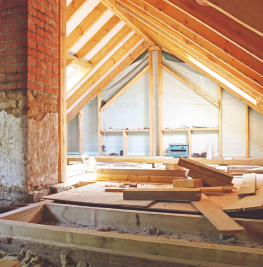 Timeframe is a major factor in deciding to renovate an existing home. When you make an offer on a home you want to purchase, you can usually close on the home and move in in as little as 45 days. This is especially important if you have a deadline such as a lease ending, the sale of your current home, or relocation to a new city.
Timeframe is a major factor in deciding to renovate an existing home. When you make an offer on a home you want to purchase, you can usually close on the home and move in in as little as 45 days. This is especially important if you have a deadline such as a lease ending, the sale of your current home, or relocation to a new city.
Financing is another huge factor, as financing a pre-existing home is usually easier than financing new construction. However, if you are buying a home that requires a lot of work, you may want to obtain a renovation loan. Renovation loans can be trickier than traditional mortgages. While new construction loans involve the entire construction process, thus accommodating more moving parts, renovation loans are limited to cover the work that is under the scope of the specific project. Both may require a higher down payment.
While purchasing an existing home means that it may not be the “home of your dreams,” as long as you like the location and the overall structure of the house, a lot can be done to modify it to suit your tastes. And once you move into the house, renovations can happen on your schedule. You may want to renovate one room at a time as you live there, or handle the most pressing concerns immediately, and wait to renovate other areas later. Alexander Boone, President of Boone Homes, offers this caveat about expenses: “People choose to purchase pre-existing homes primarily because of cost. Once the remodeling process begins, however, homeowners find that they can spend far more than if they had chosen to buy new.”
Additionally, location is a big influencer when you want to live in a specific area which is already developed. In older communities and within city limits, new construction can be limited or cost prohibitive. Boone says, “Location is another big reason homebuyers choose to purchase a pre-existing home. If they want to be in an older neighborhood, they will often be willing to pay more to be in a pre-existing home in a certain neighborhood.”
Custom Building
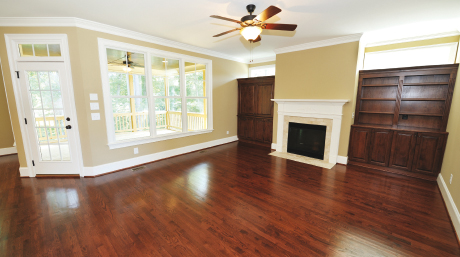 There are many advantages to building a new home, with the biggest advantage being that you are much more likely to get exactly what you want. While the process can be labor intensive, it doesn’t have to be. Also, new homes are typically more energy efficient, which can cut down on monthly bills, help the environment and create a higher level of comfort within the house. Finally, building a new home means installing new systems and appliances and knowing both the quality and nature of the underlying construction, which can save you money in the long run.
There are many advantages to building a new home, with the biggest advantage being that you are much more likely to get exactly what you want. While the process can be labor intensive, it doesn’t have to be. Also, new homes are typically more energy efficient, which can cut down on monthly bills, help the environment and create a higher level of comfort within the house. Finally, building a new home means installing new systems and appliances and knowing both the quality and nature of the underlying construction, which can save you money in the long run.
Inventory in the housing market is tight and although it has been growing, its growth has been slow as the market improves. Many times, options are slim, and homebuyers struggle to find a house that meets their needs. Instead of settling for a house that lacks many of the elements you want in a house, custom building will give you the potential to get exactly what you want. Boone says, “People who custom build want to design their own space and create their own environment. Instead of choosing to live in someone else’s home, they create their own. They may want higher ceilings, a three-car garage, larger bathrooms, or any number of elements that are not standard in home designs.” He adds, “Often, when people are looking for a lot of specifics in a home, they quickly realize that they will spend more money renovating an existing home than they would just building new.”
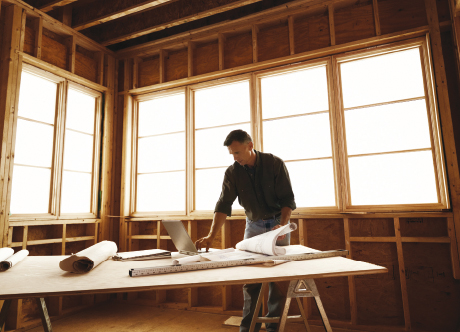 Building a new house can be as detailed or as hands-off as you like. If you prefer to engage on a daily basis, you can hire a team of professionals and work with them continually through the process; however, if you are busy and want someone else to handle the details, you can find a builder who will take over the process for you (knowing you will still need to be involved to some degree).
Building a new house can be as detailed or as hands-off as you like. If you prefer to engage on a daily basis, you can hire a team of professionals and work with them continually through the process; however, if you are busy and want someone else to handle the details, you can find a builder who will take over the process for you (knowing you will still need to be involved to some degree).
Newer homes are typically far more energy efficient than older homes, with construction advances resulting in a “tighter seal,” meaning fewer drafts in doors and windows. Newer energy building codes result in better heating, ventilation and cooling systems (HVAC), insulation and air filtration standards. Better efficiency is good for the environment and can save money on utility bills each month. New homes are also less likely to contain elements that can cause health concerns like asbestos, lead paint or mold.
New construction also provides the benefit of knowing the age of the systems and the quality of materials used in the home. When you build, you know that the systems and appliances are new, which means that you most likely defer maintenance expenses for things like your roof, HVAC and kitchen appliances. Also, when you work with contractors and builders you trust, you can eliminate the surprises that can come with renovating an older home.
 While new construction usually takes 6 months to 2 years from start to finish, there are circumstances in which homebuyers can purchase a new home in less time. If you are limited in your timeframe and don’t necessarily prefer to custom build, you can purchase a spec home or a model home. Both are built by a developer before a sales order exists. Spec homes are designed to fit the builder’s specifications and model homes usually showcase the builder’s more expensive upgrades. While sacrificing the ability to make the home uniquely yours, purchasing an already existing new home provides all the other benefits of new construction—without the wait.
While new construction usually takes 6 months to 2 years from start to finish, there are circumstances in which homebuyers can purchase a new home in less time. If you are limited in your timeframe and don’t necessarily prefer to custom build, you can purchase a spec home or a model home. Both are built by a developer before a sales order exists. Spec homes are designed to fit the builder’s specifications and model homes usually showcase the builder’s more expensive upgrades. While sacrificing the ability to make the home uniquely yours, purchasing an already existing new home provides all the other benefits of new construction—without the wait.
Whether you decide to purchase an existing home and renovate it, build a custom home from scratch, or buy an already-finished new house, there are many options for homebuyers. When planning your next move, consider all the options. Because buying a home may be your biggest purchase, make it your best.






